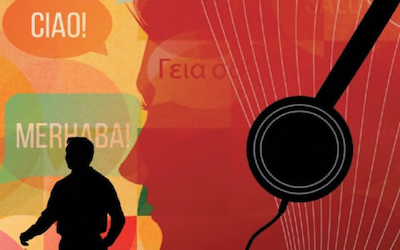随着PTE考生对PTE口语和PTE听力的重视,大家口语和听力的分数得到极大提高,但是PTE阅读渐渐成为考生们新的难题。
墨尔本悉尼文波PTE特别为PTE考生们挑选了适合练习PTE阅读的文章,主题,内容,长度都与PTE阅读题中的文章相似。激活学过的词汇,更新新的词汇,提高阅读速度,全面提升自己的阅读能力。
Baffling grammar, strange vowels, quirky idioms and so many new words—all of this makes learning a new language hard work. Luckily, researchers have discovered a number of helpful tricks, ranging from exposing your ears to a variety of native speakers to going to sleep soon after a practice session. A pair of recent papers suggests that even when you are not actively studying, what you hear can affect your learning and that sometimes listening without speaking works best.
In one study, published in 2015 in the Journal of the Acoustical Society of America, linguists found that people who took breaks from learning new sounds performed just as well as those who took no breaks, as long as the sounds continued to play in the background. The researchers trained two groups of people to distinguish among trios of similar sounds—for instance, Hindi has “p,” “b” and a third sound English speakers mistake for “b.” One group practiced telling these apart one hour a day for two days. Another group alternated between 10 minutes of the task and 10 minutes of a “distractor” task that involved matching symbols on a worksheet while the sounds continued to play in the background. Remarkably, the group that switched between tasks improved just as much as the one that focused on the distinguishing task the entire time. “There’s something about our brains that makes it possible to take advantage of the things you’ve already paid attention to and to keep paying attention to them,” even when you are focused on something else, suggests Melissa Baese-Berk, a linguist at the University of Oregon and a co-author of the study.
In a 2016 study published in the Journal of Memory and Language, Baese-Berk and another colleague found that it is better to listen to new sounds silently rather than practice saying them yourself at the same time. Spanish speakers learning to distinguish among sounds in the Basque language performed more poorly when they were asked to repeat one of the sounds during training. The findings square with what many teachers have intuited—that a combination of focused practice and passive exposure to a language is the best approach. “You need to come to class and pay attention,” Baese-Berk says, “but when you go home, turn on the TV or turn on the radio in that language while you’re cooking dinner, and even if you’re not paying total attention to it, it’s going to help you.”
Baffling: adj. 令人困惑的。
Vowel: n. 原因;adj. 元音的。
Acoustical: [声] adj. 声学的。
Intuit: vt. 由直觉知道。
墨尔本悉尼文波PTE原创首发
更多精彩请持续关注微信wenbo_tv2。





